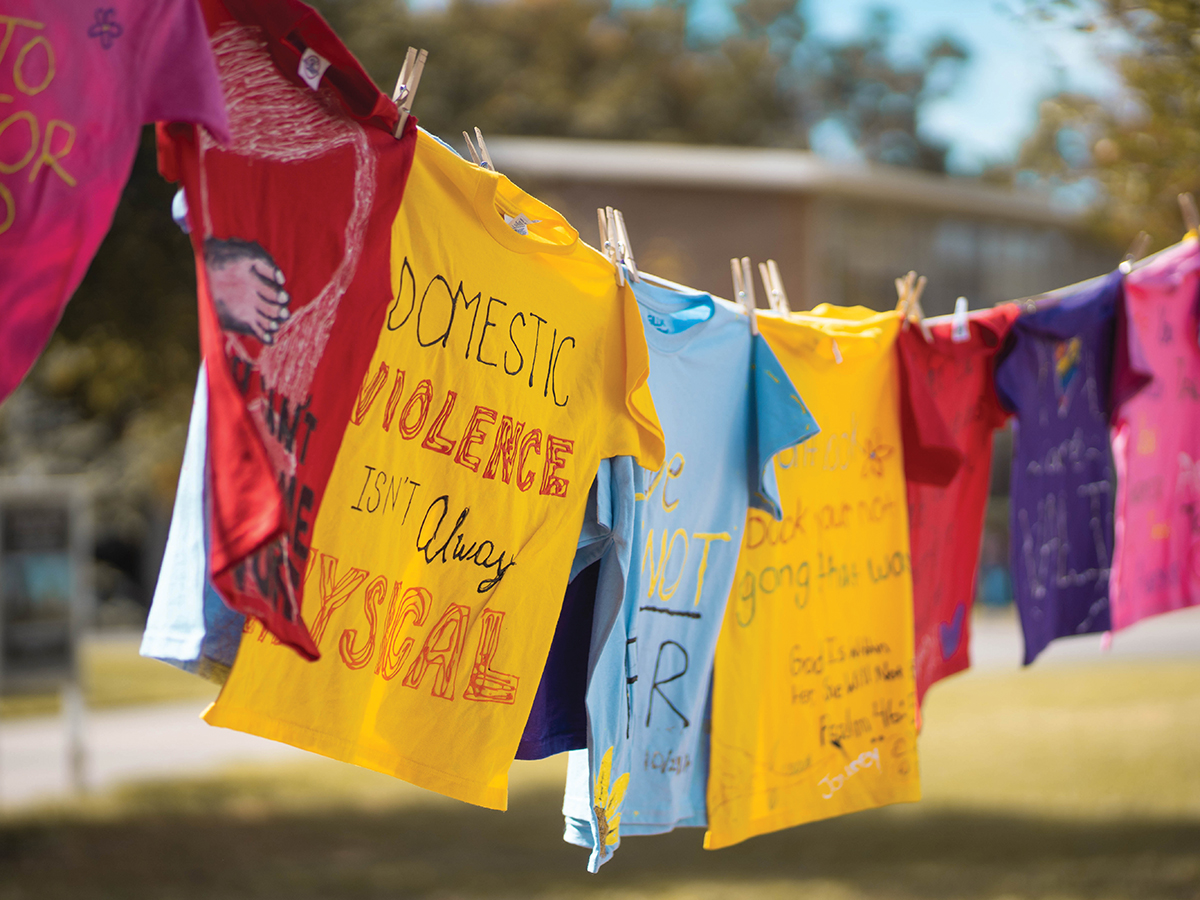
In honor of October being National Domestic Violence Awareness Month, the Women’s Resource Center partnered with CARE (Campus Advocacy, Resource and Education) and the Riverside Area Rape Crisis Center (RARCC) to host the Clothesline Project. The Clothesline Project is an annual event that displays shirts with a variety of powerful messages regarding domestic violence against women, children and men and was brought to campus for all to see on Tuesday, Oct. 15 to Wednesday, Oct. 16.
Flyers at their table told the history of the Clothesline Project. The Project began when a group of women discovered that the death rates of 58,000 soldiers in the Vietnam War was eerily close to that of women who were killed by their loved ones. They set out to spread awareness and educate people regarding the alarmingly high rates of abused or murdered women and to let them know that they have options.
Based on the Clothesline Project website, “the Clothesline is made up of t-shirts created by survivors of violence, or created in honor of someone who has experienced violence.”
Alexandria Blaze Cogbill, better known as “Sasha,” tabled at the Bell Tower and is an institution advocate at RARCC. Her aim is to advocate for college students. By partnering up with the Women’s Resource Center and CARE, RARCC hopes to create an environment that will help educate students on the resources available on-campus as well as off-campus.
The RARCC offers a variety of resources open to all such as a 24/7 crisis hotline, 24/7 hospital advocacy and accompaniment during court hearings and law enforcement interviews to provide support throughout the process. Cogbill stated that the center does “anything and everything so (victims) feel empowered and are getting control and agency over their lives again.”
The services offered at RARCC are available in both Spanish and English but they are always looking for advocates who speak different languages. In order to become an advocate, applicants have to be 21 years or older, have a driver’s license and own a car.
It is important for survivors to be aware of resources available to them, and the Clothesline Project is meant to give survivors options, help them through difficult times and let those survivors know that they are not alone. It is also meant to encourage society to volunteer and advocate for survivors and make a difference in the world.
In addition to off-campus resources, there are also on-campus resources for students to utilize. Vidhi Dave, a fourth-year biochemistry major working with the CARE office explains that they have “state-licensed advocates who help people with sexual trauma and volunteers who do sexual violence prevention education.” Their goal is to educate the community on how to prevent sexual violence, and offer their services when students need them.
Dave and others from the CARE office tabled during the Clothesline Project and participated in a touchstone activity to promote self-care. “They are a way to bring yourself back to a place of relaxation,” said Dave. They encourage participants to think of anything that makes them happy and draw on a circle. After, they glue the paper on a stone so whenever the person feels anxious, they could touch their stone and be brought back to a state of relaxation.
If anyone seeks help, there are resources available on-campus at the Women’s Resource Center, the CARE office, and off-campus at the RARCC. The RARCC’s hotline is (951) 686-7273. For those who want to volunteer to become an advocate, it is recommended to email Alexa Thomason at athomason@rarcc.org or call the number listed.







